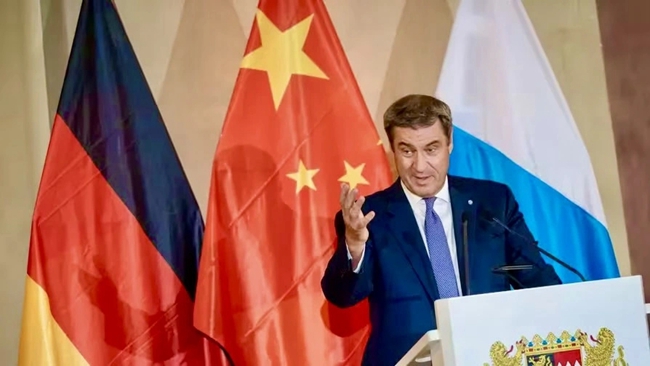According to Radio France Internationale website reported on April 16, China lifted part of the German beef import ban on the 16th. China previously implemented an import ban on German beef to prevent mad cow disease.
According to the announcement of China's General Administration of Customs, this relaxation policy applies to Germany's bone-in beef under 30 months of age.
The change took effect on April 16, the date of the announcement.
China also agreed to open up apple imports from Germany and facilitate pork imports, German Chancellor Scholz said on 16 April.Scholz made the remarks on the last day of a three-day trip to China.

According to Singapore's "Lianhe Zaobao" website reported on April 17, Scholz in Europe to China "de-risk" calls, as well as Germany's domestic economic situation is grim under the complex background of a three-day visit to China from April 14th. He is the first Western leader to visit China this year.
Scholz revealed at a press conference, China agreed to open imports of previously restricted part of the German beef and apples, and promote pork imports. Scholz and Chinese Premier Li Qiang also witnessed the signing of a number of bilateral cooperation documents, including automated internet driving.
Some scholars analyzed in an interview with the Lianhe Zaobao that although China and Germany maintain a competitive relationship in individual areas, the overall economic and trade relations have eased. Germany is considered the first step in economic and trade negotiations with China, and more European countries may follow.
Zhu Feng, executive dean of the School of International Relations at Nanjing University, analyzed in an interview that the tone of the talks between the Chinese and German leaders was positive and pragmatic, showing that China-Germany economic and trade relations have not been shaken by the current complex geopolitical factors.

